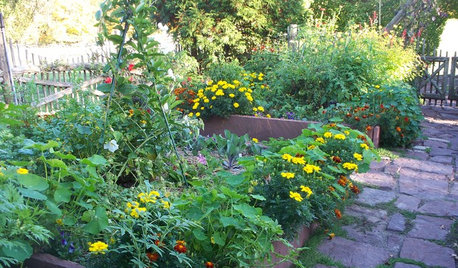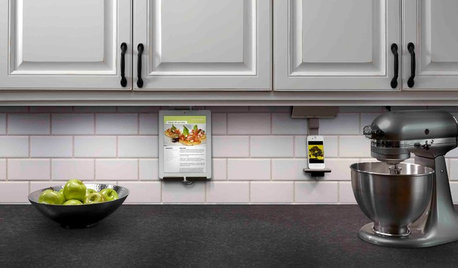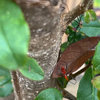Organic Insecticidal Soap Recipes
Todd_In_Texas
18 years ago
Featured Answer
Comments (62)
garnetmoth
18 years agolast modified: 9 years agoOrginut
18 years agolast modified: 9 years agoRelated Professionals
West Milford Landscape Architects & Landscape Designers · Brooklyn Center Landscape Architects & Landscape Designers · Bedford Landscape Contractors · Darien Landscape Contractors · Deer Park Landscape Contractors · Elmhurst Landscape Contractors · Munster Landscape Contractors · Oakland Landscape Contractors · Porterville Landscape Contractors · The Woodlands Landscape Contractors · Vashon Landscape Contractors · Yuba City Landscape Contractors · Fort Worth Decks, Patios & Outdoor Enclosures · Frisco Decks, Patios & Outdoor Enclosures · Westminster Decks, Patios & Outdoor EnclosuresTodd_In_Texas
18 years agolast modified: 9 years agoTodd_In_Texas
18 years agolast modified: 9 years agomzpatti
18 years agolast modified: 9 years agousername_5
18 years agolast modified: 9 years agofarkee
18 years agolast modified: 9 years agoalthea_gw
18 years agolast modified: 9 years agoalthea_gw
18 years agolast modified: 9 years agofarkee
18 years agolast modified: 9 years agoKimmsr
18 years agolast modified: 9 years agorainforest2
17 years agolast modified: 9 years agojcchinnock_gmail_com
17 years agolast modified: 9 years agoarea_man
17 years agolast modified: 9 years agontbio
17 years agolast modified: 9 years agodvines
14 years agolast modified: 9 years agonm_jan
14 years agolast modified: 9 years agobobbic
14 years agolast modified: 9 years agoorganic_jeannie
14 years agolast modified: 9 years agoorganic_jeannie
14 years agolast modified: 9 years agogrdnweb_t_dwag_spamgourmet_com
14 years agolast modified: 9 years agonovice_2009
14 years agolast modified: 9 years agostellaspice
14 years agolast modified: 9 years agoletitiashen_yahoo_com
14 years agolast modified: 9 years agojustaguy2
14 years agolast modified: 9 years agoletitiashen
14 years agolast modified: 9 years agogardengal48 (PNW Z8/9)
14 years agolast modified: 9 years agojean001
14 years agolast modified: 9 years agodesertdenizen
14 years agolast modified: 9 years agoMike_Dugas
13 years agolast modified: 9 years agonaturesheritage_earthlink_net
13 years agolast modified: 9 years agoIpmMan
13 years agolast modified: 9 years agoKimmsr
13 years agolast modified: 9 years agodvines1338_charter_net
13 years agolast modified: 9 years agomaggie1956
12 years agolast modified: 9 years agodragonfly_198_hotmail_com
12 years agolast modified: 9 years agopepper71
12 years agolast modified: 9 years agoyoshibug
12 years agolast modified: 9 years agohandywench
12 years agolast modified: 9 years agodavid52 Zone 6
12 years agolast modified: 9 years agoKimmsr
12 years agolast modified: 9 years agogonebananas_gw
12 years agolast modified: 9 years agoLander1
12 years agolast modified: 9 years agoKimmsr
12 years agolast modified: 9 years agogonebananas_gw
12 years agolast modified: 9 years agoexcavator13
11 years agolast modified: 9 years agoPeace_Nine
11 years agolast modified: 9 years agoKimmsr
11 years agolast modified: 9 years agodavid52 Zone 6
11 years agolast modified: 9 years agorhizo_1 (North AL) zone 7
11 years agolast modified: 9 years ago
Related Stories

FARM YOUR YARDHow to Grow Vegetables in Containers
Get glorious vegetables and fruits on your patio with a pro’s guidance — including his personal recipe for potting mix
Full Story
KITCHEN DESIGN8 Kitchen Organizing Ideas for Messy Cooks
Not the clean-as-you-go type? Not to worry. These strategies will help keep your kitchen looking tidy no matter what your cooking style is
Full Story
ORGANIZINGYour Total Home Organizing and Decluttering Guide
Take it slow or be a speed demon — this room-by-room approach to organizing and storage will get your home in shape no matter how you roll
Full Story
ORGANIZINGOrganizing Secrets: It’s the Little Things
Get these 8 small areas under control for a major boost in overall tidiness at home
Full Story
ORGANIZING21 Tips for Organizing Your Stuff
Restore order at home with these ideas for tidying up cupboards, shelves, doors and more
Full Story
FEEL-GOOD HOMEIs Your Bedroom Designed for a Good Night’s Sleep?
Find out how the right nightstands, bedding, rugs, TV and storage can help you get more restful slumber
Full Story
GARDENING GUIDESOrganic Matters: Thwart Insect Pests With Trap Crops
Add a few sacrificial plants to your garden to lure insects away from the harvest
Full Story
PRODUCT PICKSGuest Picks: Organizers for Every Room
From the mudroom to the bedroom closet, these stylish organizers will make neat work of all your stuff
Full Story
KITCHEN DESIGNHouzz Call: What’s Cooking in Your Kitchen?
Most of us turn to recipes, videos and culinary shows when we cook. Where do you set your cookbook, tablet or TV screen?
Full Story
DECLUTTERING10 Types of Clutter to Toss Today
Clear the decks and give the heave-ho to these unneeded items
Full Story







Kimmsr